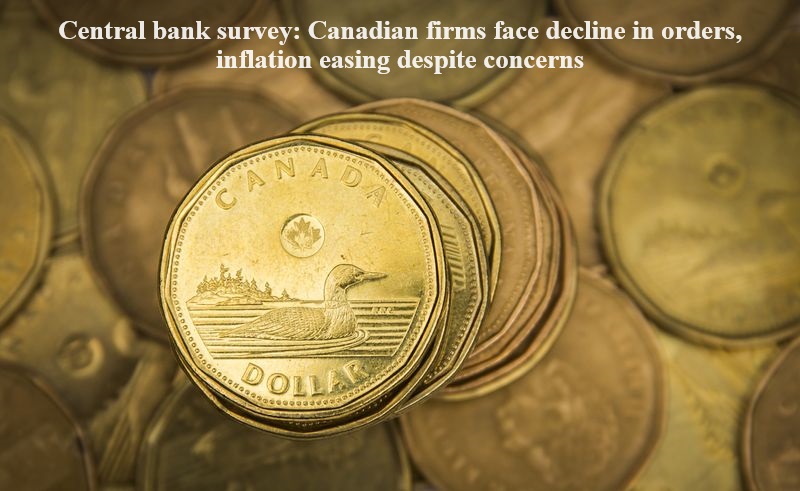
In a quarterly survey disclosed on Monday by the Bank of Canada (BoC), Canadian businesses find themselves contending with a decline in order books, primarily attributed to a dip in consumer spending resulting from elevated interest rates, as per a Reuters report. The central bank’s findings indicate that while apprehensions about wages are on the rise, firms anticipate some relief from inflation in the coming year.
Royce Mendes, Head of Macro Strategy at Desjardins Group, as cited by Reuters, remarked, “Overall, businesses and consumers are feeling the pain of higher interest rates and are responding accordingly. Consumers are curtailing spending and businesses, seeing falling sales, are tapping the brakes on hiring.”
The survey notes that 38 percent of businesses are anticipating a recession within the next year, marking an increase from the previous quarter. Concurrently, 61 percent of consumers harbor concerns about an impending recession, representing a rise from the last survey.
In comparison to the preceding year, businesses have witnessed a downturn in order books, with more firms expecting wages to rise in the coming year. Despite these challenges, there is a silver lining as many businesses still foresee an increase in sales volumes over the next 12 months.
The business outlook indicator, a gauge of economic sentiment, exhibited a slight improvement in the final quarter of 2023, moving from -3.45 to -3.15. This positive shift is credited to tempered expectations for input and output prices.
As per the survey, 39 percent of businesses reported a decline in sales volumes over the past year, attributing it to factors such as slowing growth, the impact of higher interest rates, and inflation. Last year, the Bank of Canada raised its key policy rate to 5 percent, marking a 22-year high, and has maintained it since July.
Despite the current inflation rate standing at 3.1 percent, down from the 2022 peak, it has remained above the BoC’s 2 percent target since March 2021. The survey suggests that “Firms’ pricing behavior is slowly returning to normal,” hinting at a potential stabilization in the economic landscape. However, wage growth is expected to surpass the average in the next 12 months, often linked to cost-of-living adjustments.
Looking ahead, 54 percent of businesses anticipate inflation running higher than 3 percent over the next two years, while 42 percent expect it to remain below that threshold. Intriguingly, 27 percent predict it will take longer than four years for inflation to revert to the BoC’s 2 percent target.
Governor Tiff Macklem, in his last public appearance of 2023, observed that short-term inflation expectations are gradually trending downward. Still, the persistence is anticipated due to wage growth and the prices of commodities, food, and housing.
The Bank of Canada is scheduled to announce its next interest rate decision on January 24, with expectations leaning toward maintaining the key policy rate. However, money markets and economists are anticipating rate cuts in the first half of 2024. The dual survey approach by the central bank also reveals that consumers do not anticipate further interest rate increases in the next year.

Post Your Comments